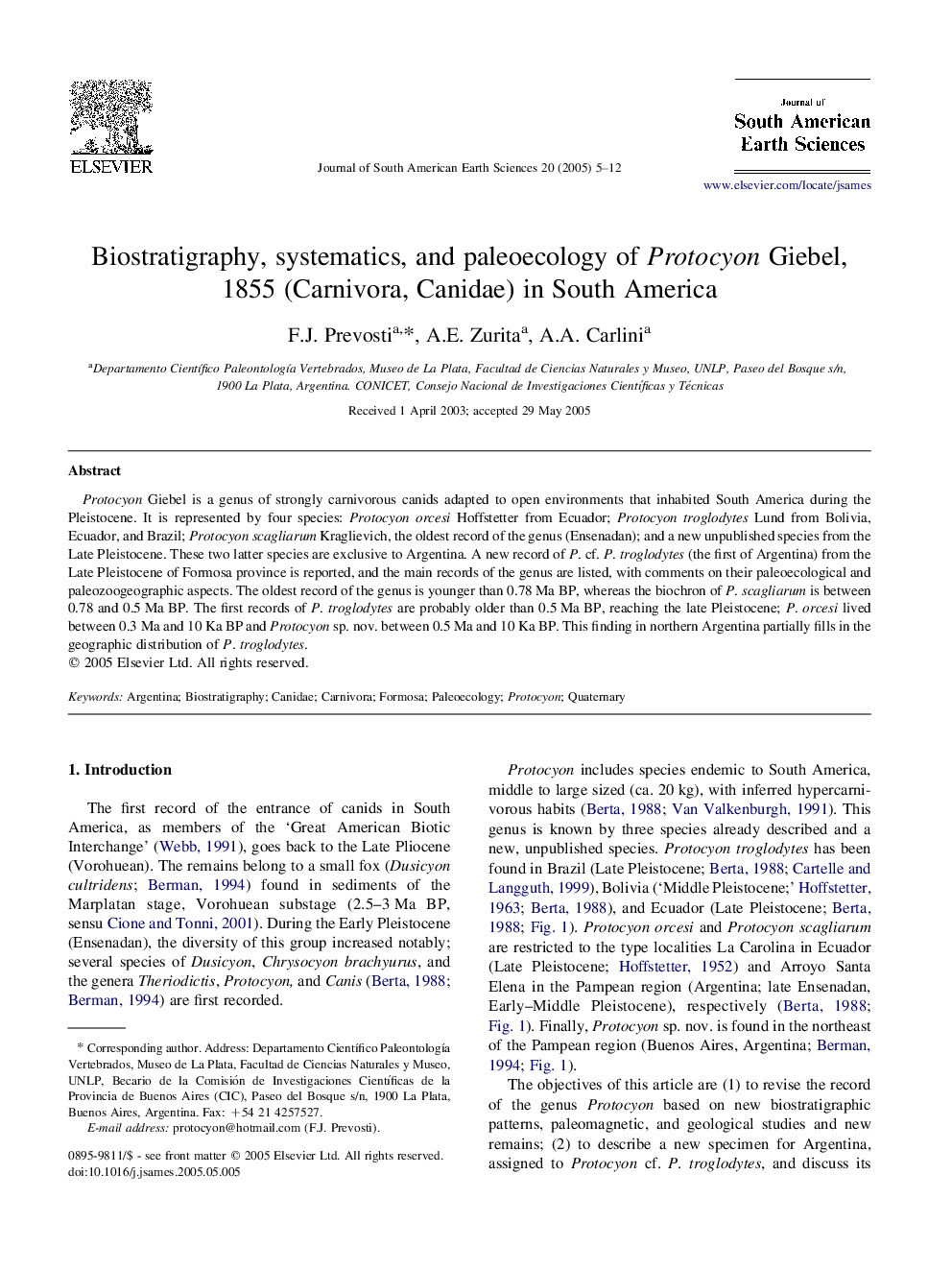| Article ID | Journal | Published Year | Pages | File Type |
|---|---|---|---|---|
| 9524371 | Journal of South American Earth Sciences | 2005 | 8 Pages |
Abstract
Protocyon Giebel is a genus of strongly carnivorous canids adapted to open environments that inhabited South America during the Pleistocene. It is represented by four species: Protocyonorcesi Hoffstetter from Ecuador; Protocyontroglodytes Lund from Bolivia, Ecuador, and Brazil; Protocyonscagliarum Kraglievich, the oldest record of the genus (Ensenadan); and a new unpublished species from the Late Pleistocene. These two latter species are exclusive to Argentina. A new record of P. cf. P. troglodytes (the first of Argentina) from the Late Pleistocene of Formosa province is reported, and the main records of the genus are listed, with comments on their paleoecological and paleozoogeographic aspects. The oldest record of the genus is younger than 0.78Â Ma BP, whereas the biochron of P. scagliarum is between 0.78 and 0.5Â Ma BP. The first records of P. troglodytes are probably older than 0.5Â Ma BP, reaching the late Pleistocene; P. orcesi lived between 0.3Â Ma and 10Â Ka BP and Protocyon sp. nov. between 0.5Â Ma and 10Â Ka BP. This finding in northern Argentina partially fills in the geographic distribution of P. troglodytes.
Related Topics
Physical Sciences and Engineering
Earth and Planetary Sciences
Earth and Planetary Sciences (General)
Authors
F.J. Prevosti, A.E. Zurita, A.A. Carlini,
